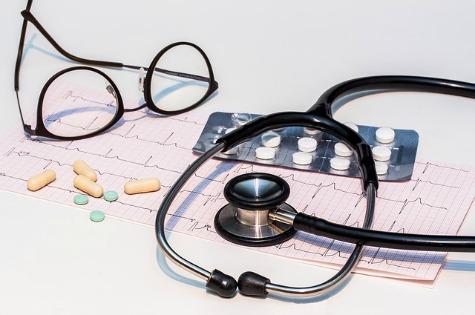We've all heard about cholesterol, but do you actually know what it is and what it really does? Contrary to what we usually hear, cholesterol plays a useful role in our body, helping build cells, make hormones, vitamin D, and substances that help you digest foods. It's also present in some foods.
What is cholesterol?
If you saw cholesterol, it would resemble a melted candle: this waxy substance is found in all our cells, and is carried through our bloodstream, attached to lipoproteins.
There are two types of lipoproteins: low-density lipoproteins (LDL) and high-density lipoproteins (HDL). It's important to have healthy levels of both types, which is why regular check-ups are important.
What is “good” and “bad” cholesterol?
LDL cholesterol is sometimes referred to as "bad" cholesterol – this is because high levels of LDL can lead to a build-up of cholesterol in your arteries, which can cause heart disease, heart attacks or strokes. HDL cholesterol is also known as the “good” cholesterol. This is because it carries cholesterol from other parts of your body back to your liver, which in turn, removes the cholesterol from your body.
How do I know if I have high cholesterol?
Your general practitioner or doctor can check your cholesterol levels through a simple blood test.
Remember, high cholesterol has no symptoms (although excess weight, smoking, poor diet and lack of exercise are major indicators that your cholesterol levels may be high). A blood test is the only way to detect high cholesterol, so it is important to discuss your health history and concerns with your doctor.
What are the health risks of high cholesterol?
In Australia, 33 per cent of adults aged between 30 and 65 years have been diagnosed with high cholesterol.1 If you have high cholesterol, you are at greater risk of coronary heart disease. According to the Australian Heart Foundation, total blood cholesterol levels exceeding 5.5 mmol/L greatly increase the risk of ischaemic heart disease, while levels above 6.5 mmol/L represent extremely high risk.
How can I reduce my bad cholesterol?
LDL cholesterol can be lowered by increasing your servings of polyunsaturated oil, such as sunflower of safflower oil. Eating oats and legumes can lower LDL cholesterol by five per cent, and put foods called saponins – think chickpeas, alfalfa, spouts – in your shopping basket, alongside garlic and onions, as these may also have a positive effect in lowering cholesterol levels. Supplementing with Cuban Policosanol may also help to improve cholesterol levels by increasing HDL cholesterol and reducing LDL cholesterol within the normal cholesterol range.
To find out more about cholesterol and its management please visit www.raydel.com.au.
Dietary supplements should not replace a balanced diet. Please seek advice from your healthcare practitioner before considering the use of supplements.








 Agree (0)
Agree (0) Disagree (
Disagree (









__small.png)










